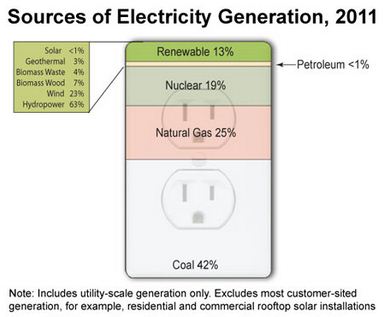Excessive Spending
There are some economists who continue to argue that it is not the trade deficit (current account) that is the problem; it is the government spending that is the problem.
Let's take a look at the idea that it is the government's fault:
- U.S. imports more than it exports so there is a large net outflow of U.S. dollars
- Dollars held by foreigners are used as local currency or invested in the U.S. in some form
- Dollars not used as local currency or invested in the U.S. private sector are invested in government notes to cover excessive government spending
- This allows the government to go further into debt... and since we are all the government, we go further into debt
- U.S. currency declines relative to foreign currency making imports more expensive and fixing the trade imbalance... and fueling inflation??? which the government tries to fix by increasing interest rates which slows the economy which leads to business slow down and increased unemployment which is ... wait that's a recession.
- U.S. businesses are caught in a bind that they are losing sales in the private sector to imported goods while government purchases of their products and services decrease because the government only takes in what it spends
- U.S. government revenues fall as businesses and those employed by those businesses pay less taxes; businesses earn less and more people are laid off
- The U.S. dollar gradually strengthens against foreign currency as total U.S. purchases of imported goods decrease thereby making domestic products more expensive relative to imports
- U.S. businesses continue to decline or increase use of foreign-made components in their products leading to fewer Americans being employed... wait that's a recession!
I guess I will continue to hold the position that a huge, negative current account is a bad thing for the U.S. ... one way or another. Either the government becomes an even bigger debtor to foreign interests or the private sector becomes controlled by foreign interests ... whose interests may not necessarily be those of the American populous.
Perhaps a more balanced current account through management of imports might be desirable. We don't have to have import fees, but perhaps a retail surcharge on imported products might help blunt Americans appetite for all things imported... you can bring it in without hassle... you can wholesale it without hassle... but if your customers want to buy it, they have to help offset the economic problems caused by the massive trade imbalance those products bring... and concomitantly reduce the need for government borrowing.
Or... the government can repeal minimum wage, health and safety requirements, social security and associated programs and let wages and benefits fall to be competitive with the poorest workers of the world so that we can become the new China.
Nah.






